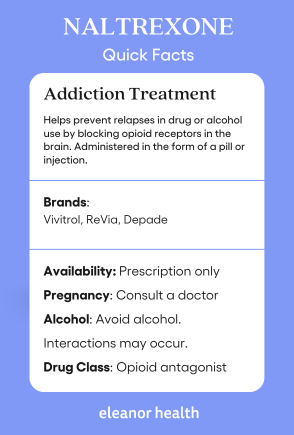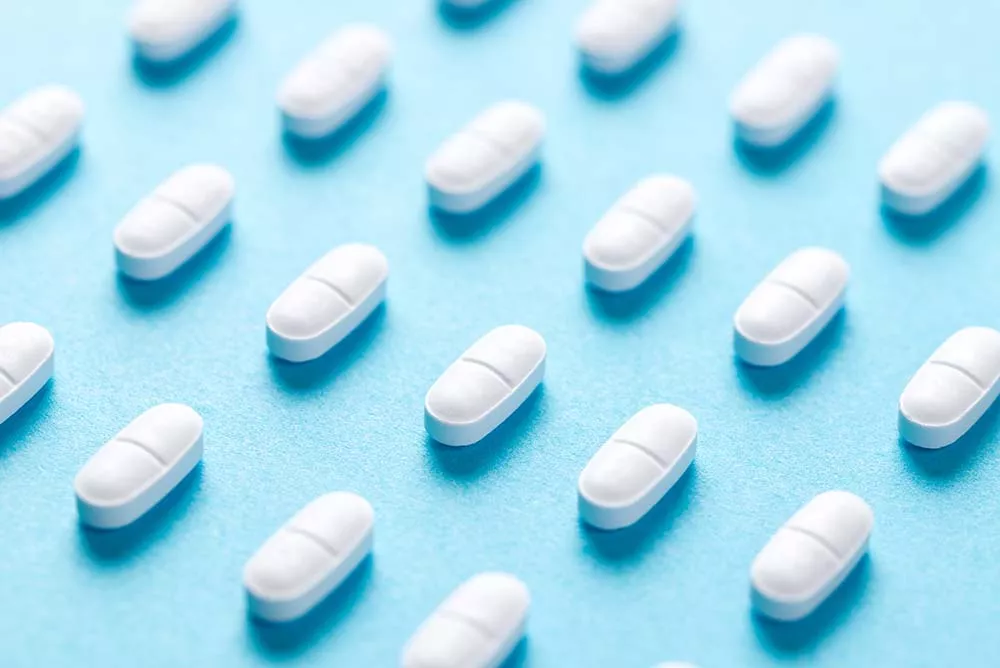Alcohol use disorder (AUD) and opioid use disorder (OUD) are the two most common substance use disorders (SUD) in the United States. According to data from the Centers for Disease Control and Prevention (CDC), deaths from overdose topped 112,000 in 2023, with about 70% of overdose deaths occurring from opioid use. And excessive alcohol use is responsible for more than 95,000 deaths in the U.S. each year. For this reason, we should make every effort to ensure that individuals with addiction can begin and maintain treatment.
Vivitrol is an injectable form of naltrexone used to treat alcohol addiction and opioid dependence. Vivitrol is a medicine approved by the FDA for alcohol or opioid addiction. It helps people stay sober by reducing cravings. However, Vivitrol is most effective when used as part of a comprehensive treatment program to help reduce the risk of relapse and maintain abstinence while in recovery.

Vivitrol’s main ingredient, naltrexone, is currently the only medication that isn’t classified as a controlled substance. Naltrexone works by blocking the opioid receptors in the brain. In contrast to other medications such as buprenorphine and methadone, Vivitrol is a non-addictive and non-narcotic medication with a low potential for misuse.
When used as part of treatment for alcoholism, Vivitrol prevents the endorphins released by alcohol from binding to their receptors. But when used as a medication for opioid addiction treatment, it attaches itself to opioid receptors in the brain and prohibits other opioids from interacting with them. This helps to reduce and control cravings for alcohol or opioids.
Individuals in opioid addiction treatment must complete opioid detox and maintain abstinence for seven to 14 days before starting Vivitrol treatment. Individuals who use Vivitrol while on opioids can experience sudden opioid withdrawal syndrome (SOWS), leading to fatal consequences. You can still drink alcohol while receiving Vivitrol treatment, but it is recommended to avoid it.
It’s important to keep in mind that Vivitrol alone cannot help you achieve prolonged recovery. It is part of a treatment plan that should also include counseling and other therapies to help individuals in recovery. Clinical studies indicate that Vivitrol combined with counseling and behavioral therapy has shown a 90% success rate in helping people stay in treatment and maintain sobriety.
According to the U.S. Food and Drug Administration (FDA), Vivitrol must be prepared and administered by a healthcare professional as an injection at the recommended dose of 380 mg each month.
Before starting Vivitrol treatment, healthcare practitioners must conduct:
Once an individual meets the requirements and conditions, they will be considered eligible for Vivitrol treatment.
Vivitrol is packaged along with a special needle to administer the medication. Your healthcare practitioner will inject the medication into a muscle in one of your buttocks during treatment. For consecutive injections of Vivitrol, most healthcare providers alternate between the buttocks and the thighs. Rotating injection sites is a practice that is done solely to reduce the risk of scarring and injection site reactions caused by getting injected in the same area.
Vivitrol shots can cause severe injection site reactions (ISRs) in certain individuals, some of which may require significant surgical intervention. In addition, the National Center for Biotechnology Information (NCBI) reports that the chance of these severe reactions may increase if the medication is inadvertently administered subcutaneously (under the skin) rather than intramuscularly (deep into the muscles).
Vivitrol is generally well tolerated. The side effects of the injection are similar to the pill form. However, there may also be reactions at the injection site.
Inform your healthcare provider if the side effects persist or worsens. Your physician can decrease your dosage or provide you with an alternative medication.
Severe side effects of Vivitrol have the potential to be a medical emergency that requires immediate medical attention. Hence it’s vital to pay close attention to these symptoms and conditions.
The amount of time Vivitrol stays in your body depends on how quickly your body breaks down the slow-release formula. This process can vary from person to person. The effect of Vivitrol lasts around a month in most people, with new shots required once every month to keep it active.
Vivitrol’s effects peak two hours after the first dose and then peak again after two to three days of treatment. The medication’s concentration in the body begins to diminish two weeks after administration. However, it can be detected for up to 25 to 50 days following initial administration.
Many factors influence how long Vivitrol remains in your system, including:
Since Vivitrol is an ideal option for short-term and long-term treatment, it can be administered for several months or years. However, most medical professionals recommend that it be administered for at least a year.
It’s difficult to predict which medication will work best for someone with an opioid or alcohol addiction. Furthermore, the factors that influence a person’s pharmaceutical treatment success may shift over time or subsequent treatment attempts.
However, the following individuals are considered ideal candidates for Vivitrol treatment:
Experts agree, however, that the following people are unlikely to benefit from Vivitrol:
Vivitrol blocks the effects of any opioid-containing medicines you take, such as prescription medicine for pain, cough, diarrhea medicines, vitamins, and herbal supplements. Harmful side effects may occur as a result of these medications interacting with it.
Vivitrol may interact with medications such as:
Tell your doctor about all opioid medications you currently take and any you have taken before.
Vivitrol is classified by the U.S. Food and Drug Administration (FDA) as a category C pregnancy medication meaning it is considered unsafe and may cause harm to the fetus. Medication in this category should only be taken if the benefits outweigh the risks.
Another concern regarding Vivitrol is how it may affect the baby during breastfeeding. Unfortunately, it’s not clear whether breastfeeding is safe while using Vivitrol since naltrexone is known to pass into breast milk. However, it’s best to consult your doctor and talk to them about any concerns you may have. They can help you figure out the best way to feed your child during Vivitrol treatment.
Ultimately, whether or not Vivitrol is a suitable treatment option during pregnancy is between you and your healthcare provider. A doctor may recommend that you take the monthly injection if the dangers of not using Vivitrol exceed its risks.
If you are seeking help with your loved one’s addiction, contact us today to speak with an addiction treatment specialist.
If you need help with your addiction, we are here to help you build your confidence and momentum towards the future you want. We provide treatment services for adults with alcohol, opioid, and other substance use disorders. We are currently located in Louisiana, Massachusetts, New Jersey, North Carolina, Ohio, Texas, and Washington.
 Vivitrol and Drinking: What You Should Know About Vivitrol and Alcoholism
Vivitrol and Drinking: What You Should Know About Vivitrol and Alcoholism
 How Long Does Naltrexone Take to Work?
How Long Does Naltrexone Take to Work?
 Virtual Addiction Treatment: is it as Effective as In-Person Treatment?
Virtual Addiction Treatment: is it as Effective as In-Person Treatment?